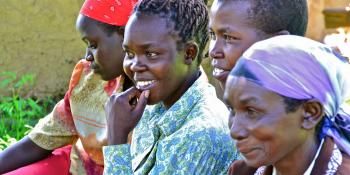Commemorating International Women's Day by highlighting the role of women in climate change adaptation
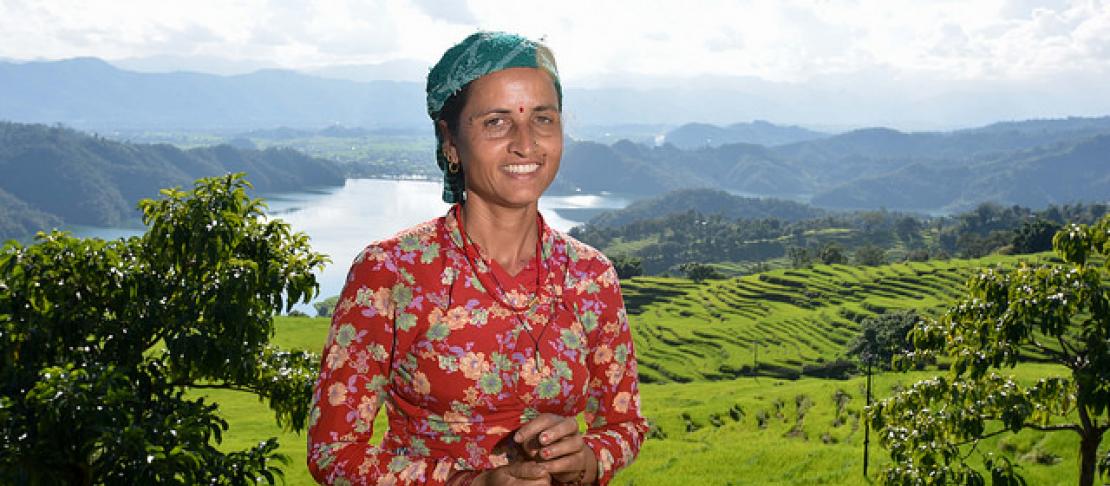
This year, the International Women's Day focuses on women and the world of work, highlighting both the importance of women’s work and the continued need for economic parity.
International Women’s Day, held on March 8, is an annual day that recognize the achievements and contributions of women. The 2017 IWD theme, “Women in the Changing World of Work: Planet 50-50 by 2030,” is especially important for those working to recognize and support women’s work. This push for parity supports development around the world, including several Sustainable Development Goals.
The work that women engage in, such as agriculture production, is an important factor in climate change adaptation and mitigation. Research and policy should focus on identifying and targeting strategies, such as support for women’s work, that best assist women and young people in meeting the challenges of climate change.
Collaborative and participatory research approaches ensure that women, men, and young people are engaged in developing technologies that are most appropriate for themselves, including technologies that support women’s work and priorities. Research conducted by the CGIAR Research Program on Climate Change, Agriculture and Food Security (CCAFS) points to the important role that these approaches play in reducing gender inequalities at the community level. When gender inequities are reduced, households and communities see positive changes in attitudes and relationships, and decision-making structures become more equal.
In collaboration with other organizations around the world, CCAFS commemorates IWD by highlighting women and projects that push for gender equality in agriculture and climate change adaptation and mitigation.
AFRICA
Throughout Africa, CCAFS is working with local communities to implement participatory research. On such participatory action research project took place at the Nyando Climate-Smart Village in western Kenya. The project trained women in climate-smart innovations and practices while also providing information about farm tools, technologies, microfinancing, and micro-insurance that could improve their adaptation to climate change.
Similarly, vulnerability assessments increase a community’s understanding of their potential to adapt to climate change. A vulnerability assessment was conducted in a pilot project in Tanzania with the goal of helping communities with limited resources gauge the impact of climate change on local livelihoods and food security. Vulnerability assessments are especially important for highlighting the unique challenges that women, young people, and other marginalized groups face in regards to climate change.
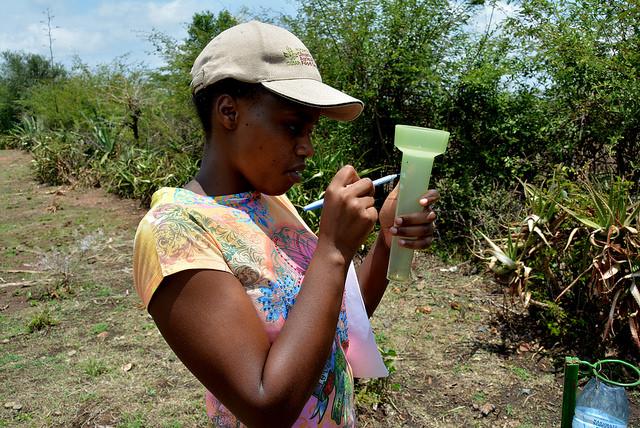
Photo: P. Kimeli (CCAFS)
Another participatory method that shows promise in reducing gender inequities is the Participatory Integrated Climate Services for Agriculture (PICSA) approach. At the local level, partners involved in PICSA include the National Meteorology Agencies (who provide seasonal and daily weather forecasts), extension officers, and farmers. Together, these stakeholders use weather forecasts and historical climate information to develop appropriate seasonal crop and livestock options that are suitable for each farmer. Through this participatory process, women and men farmers are able to identify suitable practices for each season. The PICSA approach is now in use in some African countries including Rwanda, Tanzania, Malawi, Ghana, Zimbabwe and Lesotho.
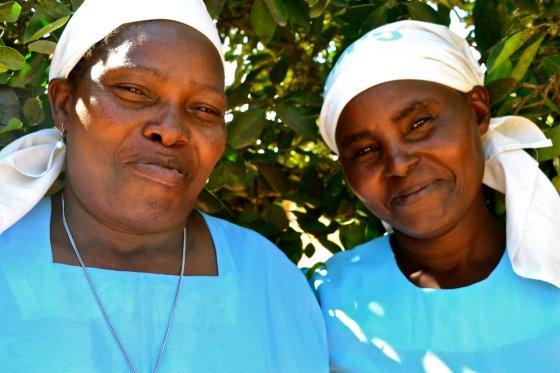
Photo: C. Schubert (CCAFS)
In addition to the benefits of participatory research, Climate-Smart Village activities can support women’s work. One such example comes from Kenya where local women use the skills and knowledge gained through climate-smart learning sites to become leaders in their communities.
Two such participants, Queen Teva and Josephine Mutua, lead learning sites that experiment with climate-smart techniques. They report that their experience helps them produce more food and gain respect in their communities.
LATIN AMERICA
In Latin America, gender and social inclusion strategies for Cimate-Smart Villages aim to close gender gaps in the rural sector and reduce rural women’s vulnerability to climate change.
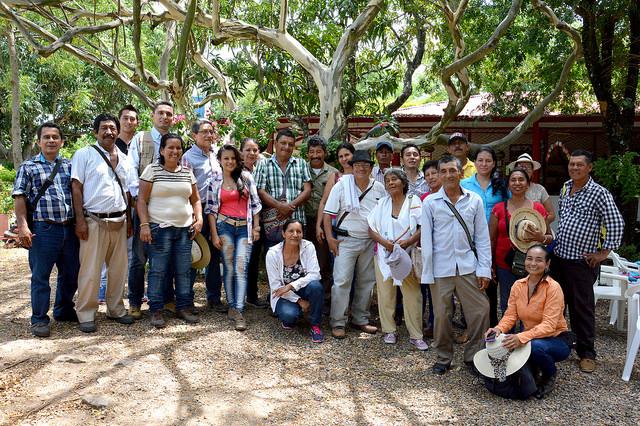
Photo: JL Urrea (CCAFS)
Strategies to close these gender gaps include promoting equal control of assets and resources, technologies and practices that reduce labor, and encouraging the participation of women and youth in decision-making. The participation of all stakeholders in these strategies helps identify gender gaps and social and economic inequalities.
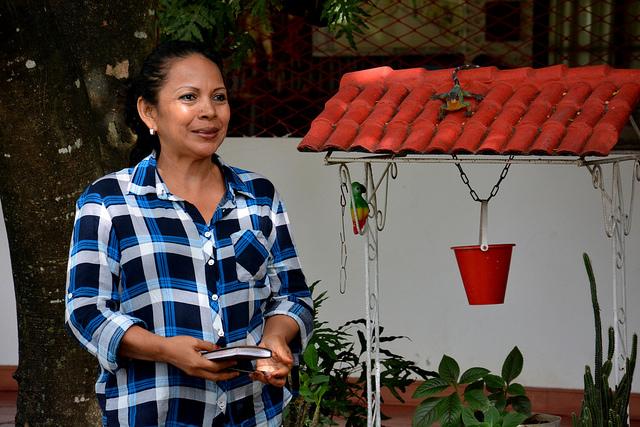
Photo: JL Urrea (CCAFS)
One such example of this comes from Natagaima, Colombia, where a woman’s producers association, called the Association for the Future in the Hands of Women, have organized to support their communities in the implementation of adaptation measures to climate change. The group prioritized five climate-smart practices and received support from CCAFS to implement their projects.
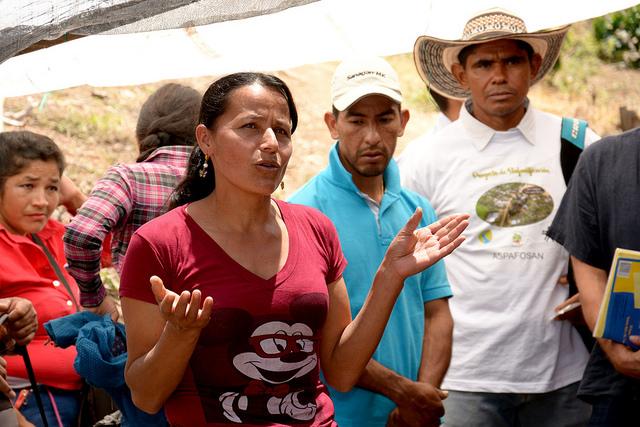
Photo: JL Urrea (CCAFS)
Another example that highlights the importance of participatory processes that includes the perspectives of women comes from the Cauca Climate-Smart Village. Here, each family analyzed its vulnerabilities to climate variability and identified potential climate-smart practices that considered the implementation roles of each member of the family.
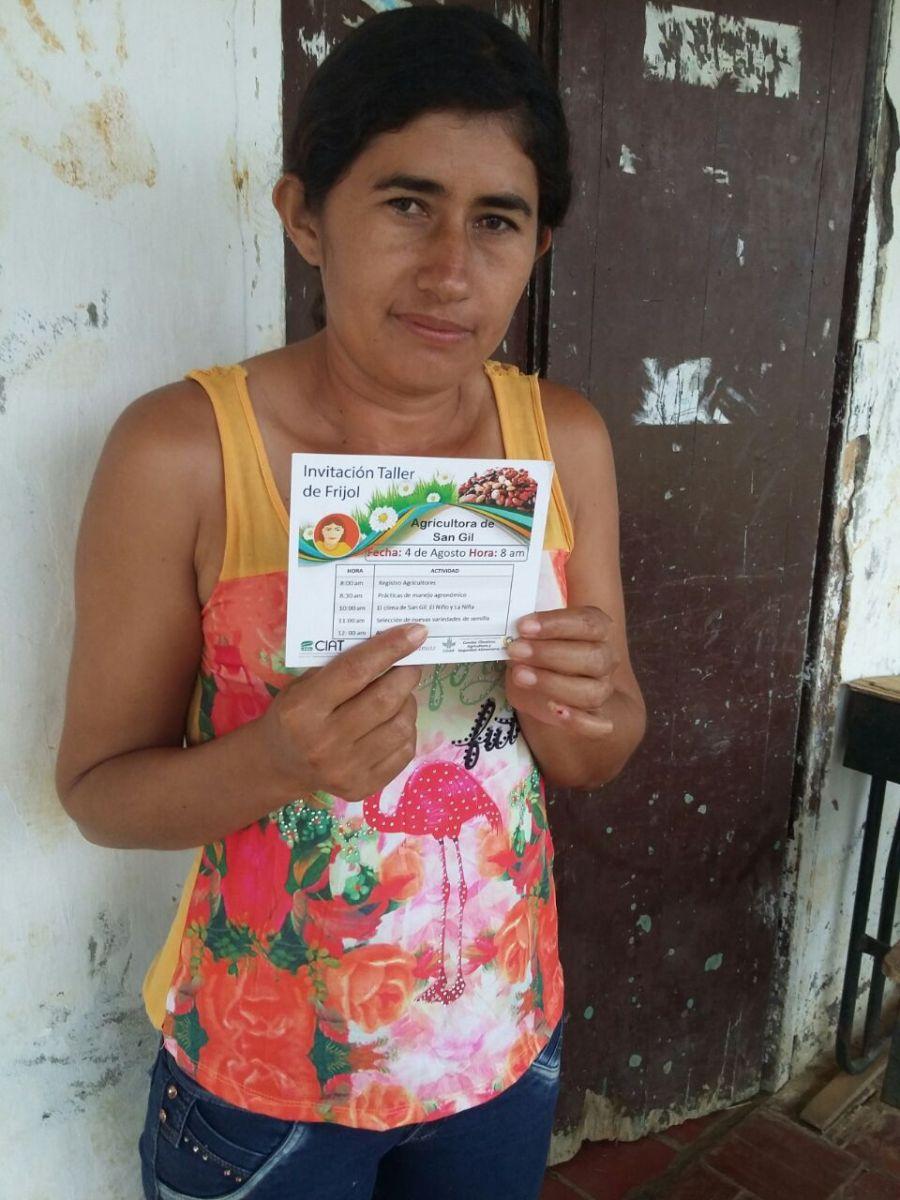
Photo: Jenny Paola Gutierrez Cadena
Also taking place in Colombia, the Agroclimas project aims to improve climate risk management through innovative approaches and tools. The project actively considers the role of women in agriculture and the gender dynamics that are significant for climate-smart agriculture interventions. The goal is to understand gender differences in decision-making, farm management, resource ownership, information access and gaps, and perceptions of climate change.
SOUTHEAST ASIA
In Southeast Asia, an agro-climatic information systems (ACIS) initiative will boost the adaptive capacities of women and ethnic minorities and helps researchers better understand the impact of making climate information gender sensitive. Agricultural and meteorological service providers will work with smallholder farmers to better anticipate and respond to changing weather patterns using weather information. Farmers will work with service providers to evaluate their agricultural management options after engaging with meteorolocial observations.
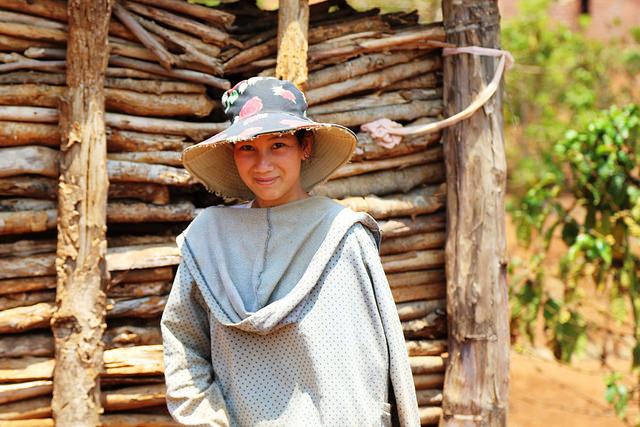
Photo: Leo Sebastian (CCAFS SEA)
In addition to the scientific information provided through ACIS, local knowledge and farmer-learning networks will be incorporated in capacity building. Beginning in Vietnam, the project will also be implemented in Cambodia and Laos. Project leaders anticipate that 200,000 farmers will learn about climate change and variability. Gender specific outcomes of the project include an adaptation of the methods and tools available in the Women’s Empowerment in Agriculture Index, an analysis of gender and equity in assessment reports, and a review of policy that supports or inhibits ACIS use with a gendered lens.
As the global community continues to grapple with issues of food production and climate change, the importance of developing approaches that support gender-equitable decision-making, resource ownership and management, and resiliency to climate change becomes all the more apparent. Participatory methods, like those described here, provide a platform for women and other marginalized groups to engage in projects that improve their ability to adapt to climate change. Together, these projects provide a glimpse of the important work conducted around the world by women and in support of them.
Read more:
- Women take action on climate change in agriculture
- International Women's Day 2016: spotlight on women taking action on climate change in agriculture
- Celebrating women farmers in Nyando: transforming lives through climate-smart agriculture
Kathlee Freeman is Communications Assistant at CCAFS Gender and Social Inclusion Flagship.

